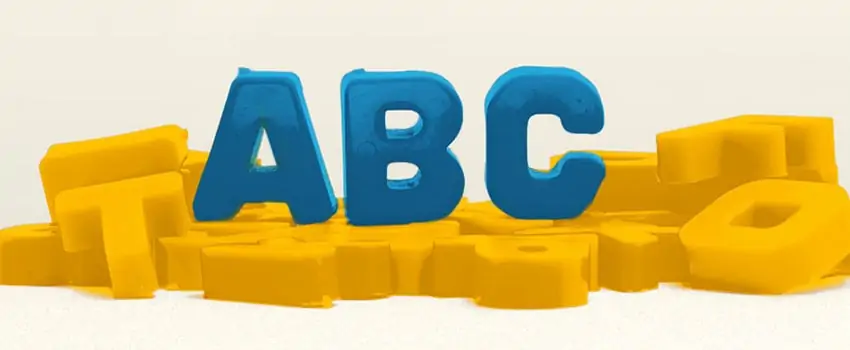Language is constantly evolving. Even though we have thousands of words in the English language, new words are added to the dictionary every year.
This year was no exception. In 2017, the dictionary swelled with new words that included both those which have become relevant through current discourse and those based on new technology.
To be added to a dictionary, a word needs to have been adopted by a significant portion of the English-speaking population, and it cannot be a word that comes in response to recent events but will flame out shortly. We looked at Merriam-Webster to see how strict the process really is. There, editors sift through books, magazines, newspapers and online media to see whether particular usages of words have gained enough popularity to become part of the dictionary. When a new word is discovered, it goes into a citation file at Merriam-Webster. If it racks up enough citation files, it can be officially added into the dictionary.
While this is a lengthy process, hundreds of new words made it into the dictionary this year. And below, we’ve gathered 10 of the most interesting words to come out of 2017.
1. Froyo (noun)
This shorthand term for frozen yogurt was first coined as a rhymey abbreviation back in the 1970s. As frozen yogurt has become an increasingly popular alternative to ice cream—and a slew of froyo shops have opened up across the country—the word’s usage has expanded in recent years. It was officially added to Merriam-Webster in September. For those who felt uneasy about using the shortened term, rest assured that the dictionary now has OK’d its usage.
2. Binge-watch (verb)
The word “binge-watch” has rapidly become a commonplace piece of slang to describe the phenomenon of sitting down to watch several episodes—or even a full season—of a television show in one sitting. Binge-watching has become increasingly popular with the rise of streaming services like Netflix and Hulu, so it only seems fair that the word now has its own spot in the dictionary.
3. Train wreck (noun)
The word train wreck dates back to the 1800s, used then only to refer to violent crashes involving trains. Today, the word has taken on more meaning and refers to any kind of disaster involving significant damage, regardless of whether a train was involved. This usage often is used by writers critiquing political policy, although its usage can extend beyond the realm of politics and be used to describe any person or thing deemed disastrous.
4. Photobomb (verb)
While many of the new words originated years ago, photobomb—a term which refers to entering the frame of a picture as a prank—has only been in usage for about nine years. With the advent of smartphones, taking photos has become easier than ever before. So, it’s no surprise that people have developed new pranks involving photographs within the past few years—and now, the dictionary has caught up with the technological trends.
5. Sriracha (noun)
Sometimes, foods become trendy, and sriracha has certainly become an ultra-trendy condiment within the past few years. Sriracha is a spicy hot pepper sauce often used in recipes and heaped upon portions of food. In the past few years, it’s become almost as ubiquitous as ketchup and mustard, appearing on menus at all different kinds of establishments. With sriracha being so popular, it deserves its place in the dictionary.
6. Humblebrag (verb)
The word “humblebrag” dates back to just 2002 and is used to describe the act of making a seemingly modest or self-critical statement with the actual intent of referring to one’s achievements. One common example of this comes in job interviews. When asked the question “What’s your greatest weakness?” many participants will respond by saying they work too hard or are perfectionists—both considered good things in our society.
7. Troll (verb)
We all know the word “troll” as noun, in which it refers to mythical creatures who inhabit caves. With the internet, the term has taken on a new meaning—to post insulting or inflammatory comments on the internet with the intent to antagonize others. With the popularity of internet chatrooms and comment threads on articles posted via the internet, trolling has become a more common phenomenon. Although the word “troll” itself was first adopted in the 15th century, this new usage demonstrates how the English language continues to evolve over time.
8. Listicle (noun)
This article, made up of items presented as a list, could be referred to as a listicle. With the advent of the internet—and with the popularization of new media forms like Vox and Buzzfeed—more digestible forms of presenting information have become popular. Listicles break up information for readers in a way that takes advantage of webpage design, and now, they’re officially recognized in the dictionary.
Every year, the dictionary expands with more and more words, once slang, that become acceptable in more formal contexts. Many of the newest words come in response to technological advances (or to the popularization of certain foods). But others not listed above draw from a large range of fields. For instance, EpiPen and urgent care, two terms used in the medical world, both made their way into the dictionary this year, as did bunny and face mask, two new usages from the football field.
Bibliography
Create citations like those below in MLA format, convert them into APA citations, or choose another citation style, like Chicago, with BibMe’s citation tools! If you are looking for more writing help, try BibMe Plus’s grammar check.
“How does a word get into a Merriam-Webster dictionary?” Merriam-Webster, Merriam-Webster, www.merriam-webster.com/help/faq-words-into-dictionary.
“How Does a Word Get Into the Dictionary?” Merriam-Webster, Merriam-Webster, www.merriam-webster.com/words-at-play/how-does-a-word-get-into-the-dictionary.
“Infographic: How a Word Gets Into the Dictionary.” Merriam-Webster, Merriam-Webster, www.merriam-webster.com/words-at-play/how-a-word-gets-in-the-dictionary-infographic.
“We Just Added More Than 1,000 New Words to the Dictionary.” Merriam-Webster, Merriam-Webster, Feb. 2017, www.merriam-webster.com/words-at-play/new-words-in-the-dictionary-feb-2017.
“Welcome to the New Words.” Merriam-Webster, Merriam-Webster, Sept. 2017, www.merriam-webster.com/words-at-play/new-words-in-the-dictionary-sep-2017.

